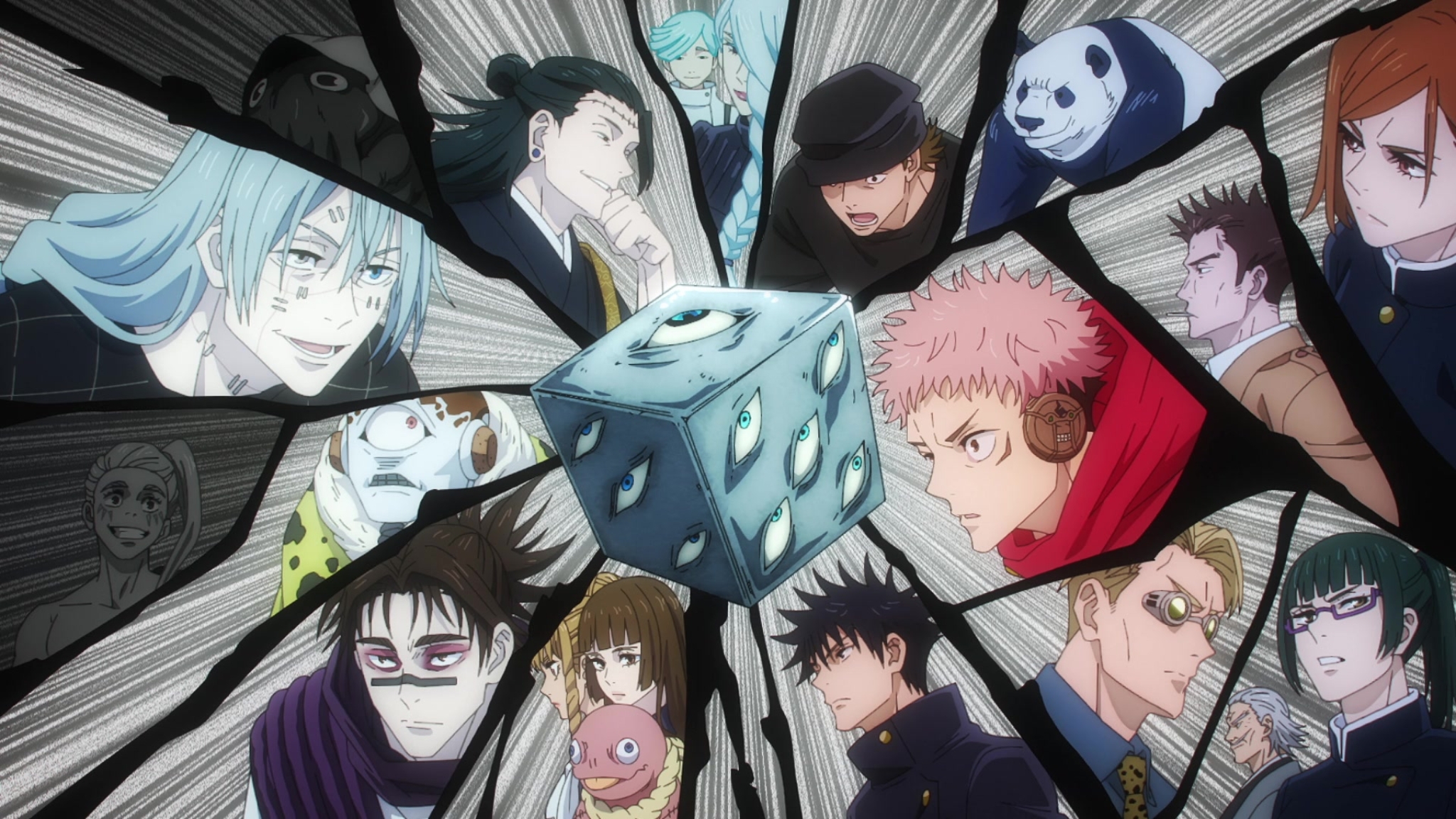
The anime “Jujutsu Kaisen” has spellbound viewers globally with its intriguing characters, distinctive abilities, and a narrative that skillfully combines dark fantasy with profound emotional resonance. Apart from the stunning animation and thrilling fights, the series is filled with impactful quotes that continue to echo in one’s mind long after the ending credits. These lines, ranging from power statements to poignant musings on humanity and curses, frequently embody the core of the characters who utter them and the brutal realm they inhabit.
Gege Akutami showcases impressive storytelling skills in these passages, providing insights into the beliefs of jujutsu sorcerers, the reasons behind cursed spirits’ actions, and the intricate dynamics that propel the plot. Let’s explore ten memorable and enduring quotes from Jujutsu Kaisen that have resonated with fans for years.
10) “Being a Child Is Not a Sin.”

From Kento Nanami, a practical and frequently fatigued jujutsu sorcerer, comes this heartfelt observation when speaking with Yuji Itadori. Nanami acknowledges the immense responsibilities and unforgiving challenges that Yuji bears at such a tender age. Rather than enjoying his youth, Yuji is thrust into battles against monstrous curses and faced with decisions that could mean life or death far too soon.
The quote serves as a strong proclamation of innocence and a subtle critique of a system that compels kids to assume perilous roles. In contrast to her usual cynicism, Nanami shows genuine empathy towards Yuji, understanding that he deserves a regular childhood instead of being dragged into a violent conflict. This underscores Nanami’s protective nature and his longing for a fairer world where children aren’t the casualties in the battle against curses.
9) “You Cryin’?”
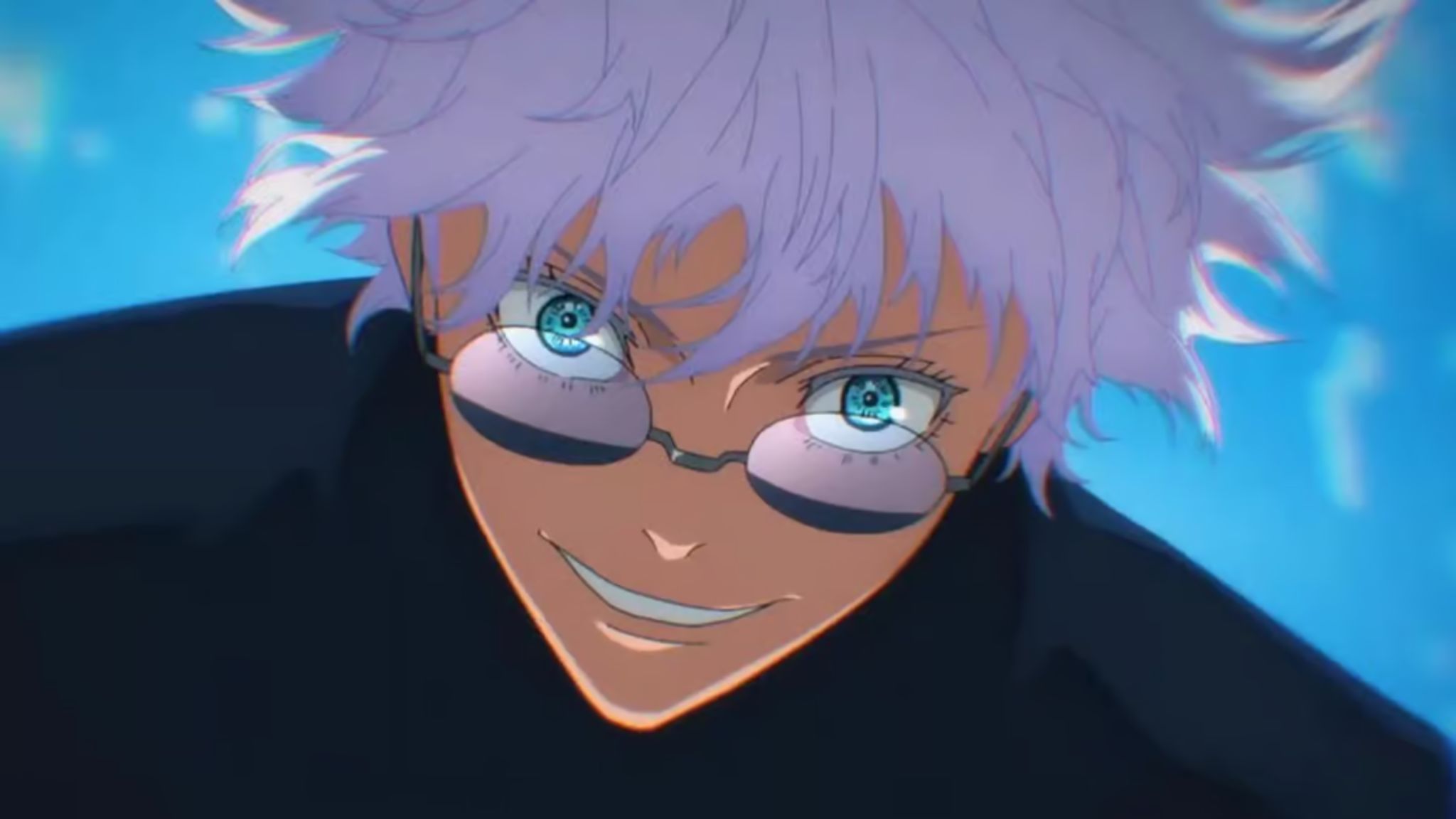
In a sarcastically arrogant tone characteristic of Gojo Satoru, this question served as his signature line during the Hidden Inventory arc, setting the stage for his teenage years. The line was first spoken in Season 2, Episode 1 titled “Hidden Inventory/Premature Death.” It rapidly gained popularity among fans and sparked online discussions, largely due to Kaiji Tang’s memorable portrayal in the English dub. Notably, Gojo directs this question at his classmate Utahime, who he has a history of irritating throughout adulthood as well.
The quote underscores Gojo’s casual, arrogant, and somewhat immature teenage attitude, as well as his nonchalant approach to potentially life-threatening situations. During this phase of his life, Gojo believes he is invincible, which is evident in this taunt, stemming from his excessive confidence and a hint of immaturity. He employs it not only to provoke but also to demonstrate his dominance and possibly alleviate tension by using his typical bravado. This casual comment encapsulates the core of his powerful yet still evolving personality, demonstrating how he often conceals serious intent behind a flippant, mocking facade, even when the risks are significant for him and those in his vicinity.
8) “My Six Eyes Tell Me You’re Suguru Geto, But My Soul Knows Otherwise!”
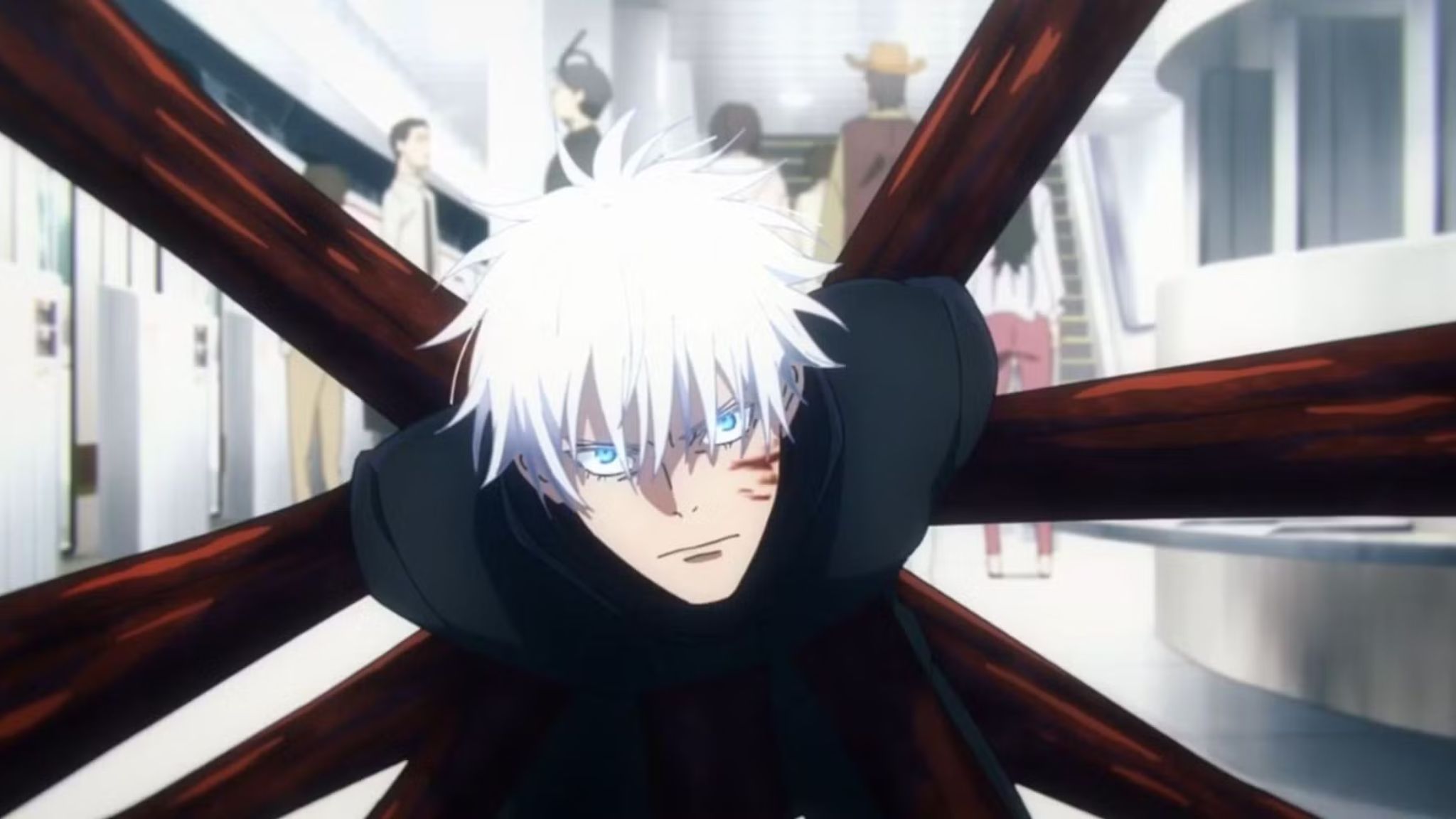
In the Shibuya Incident storyline, there are numerous poignant scenes that affect nearly every character deeply. Yet, among all these emotional instances, one line stands out as particularly devastating, and it’s delivered by Gojo Satoru. After spending a year under the assumption that his ex-best friend, Suguru Geto, had perished at his own hands, Gojo’s world is suddenly shattered when he spots Geto on the Shibuya train platform. Upon this realization, Gojo feels both nauseous and heartbroken, as he learns that not only is Geto still deceased but also that his corpse has been taken over by Kenjaku to serve as a tool for wickedness.
In the English version, a line resonates strongly: “My Six Eyes confirm you’re Suguru Geto, but deep within me, I feel something different.” It encapsulates a poignant scene that underscores the profound sorrow hidden in Gojo’s heart, his internal battle between cold facts and emotional conviction. This quote underscores the unbreakable bond between Gojo and Geto; a connection so deep that not even death could taint it, making it one of the saddest moments in the series.
7) “We’re the Strongest.”

Gojo’s assertive statement carries significant depth into his teenage psyche, revealing that even before he proclaimed himself as “the strongest” in Season 1, he and Geto used to boast about their exceptional strength together during their youth. This statement symbolizes their mutual confidence, strong bond, and unmatched sorcerer prowess among their generation peers. The quote encapsulates a time when they believed they could accomplish anything together, showcasing their extraordinary talent and the indestructible camaraderie they shared.
Looking back, there’s a melancholic undertone to that quote. At the moment they said “We’re the strongest,” they truly were at their peak. However, as time passed, their paths diverged dramatically, causing a rift and eventually leading to a disastrous conflict. Now, the phrase “We’re the strongest” serves as a poignant reminder of a bygone era, an epoch when their collective strength held unlimited potential before the harsh realities of their world shattered them apart.
6) “What Kind of Woman is Your Type?”

This well-known and distinctive query, often appearing deceptively straightforward, is the unique benchmark question of Aoi Todo. Its intellectual foundations trace back to his mentor, the elite sorcerer Yuki Tsukumo, a Special Grade sorcerer. Yuki imparted this question to Todo as a swift tool for evaluating an individual’s character and values, convinced that one’s “type” reveals profound insights into their true personality and ambitions. For Todo, it transformed into an unusual approach in searching for a genuine “best friend” – someone whose authentic self mirrored his own, culminating in the legendary relationship he shared with his “brother,” Yuji Itadori.
The quote serves not just as a humorous joke, but also plays a pivotal role in characterizing Todo. It showcases his distinctive viewpoint and his sincere longing for authentic relationships, albeit in an unusual way. Its creation by Yuki Tsukumo adds to its importance, connecting it to a broader philosophical approach towards comprehending human nature amidst the harsh realm of jujutsu. Essentially, it illustrates how even seemingly trivial questions in Jujutsu Kaisen can conceal deep meaning.
5) “I Love Myself When I’m Pretty and All Dressed Up. And I Love Myself When I’m Kicking Ass!”

In a memorable moment during her fight with Momo Nishimiya, Nobara Kugisaki boldly rebels against traditional gender roles and limitations. As a resilient and unyielding sorceress, she refuses to be stereotyped by antiquated ideas about women’s identities. Instead, she proudly showcases her complex nature, embodying her femininity along with her prowess as a fighter without compromise. This act is an inspiring expression of self-love and resistance.
The quote advocates strongly for personal individuality and self-admiration above all else. Nobara’s words strike a chord because they question the limited roles society often expects people to play; the role Momo wants to impose on Nobara and Mai. She represents the concept that genuine power stems from being true to oneself and having the courage to fully express one’s identity, disregarding traditional gender norms. It serves as a rallying call for anyone who has ever felt compelled to fit into a mold, and it underscores the fact that self-value originates from within.
4) “Itadori, You’ve Got it From Here.”

In his dying moments, severely injured and wracked with pain, Kento Nanami speaks these deeply emotional words to Yuji Itadori, moments before succumbing to Mahito’s cruel grip. Even in the face of imminent death, Nanami’s mind is on Yuji, bestowing upon him the responsibility for continuing the battle. This is not merely a transfer of duty, but a symbolic handoff of their shared knowledge and experience of their harsh reality, reflecting Nanami’s unyielding faith in Yuji’s abilities, as his own life fades away.
The quote encapsulates the profound sacrifice and guiding influence of an experienced sorcerer, who was essentially a mentor to his younger apprentice. Initially skeptical about jujutsu magic and longing for a conventional life, Nanami eventually gives up his final breath to strengthen Yuji, a boy whom he had come to cherish deeply. This act speaks volumes about Nanami’s inner fortitude, unwavering commitment to safeguarding others, and the profound bond he shared with Yuji that left an indelible impression on both the character and the audience. This poignant scene represents a significant tragedy that propels Yuji into the harsh realities of his journey while simultaneously motivating him to uphold the legacy bequeathed by Nanami.
3) “Don’t You Have a Human Heart?” “No, It Was Taken From Me.”
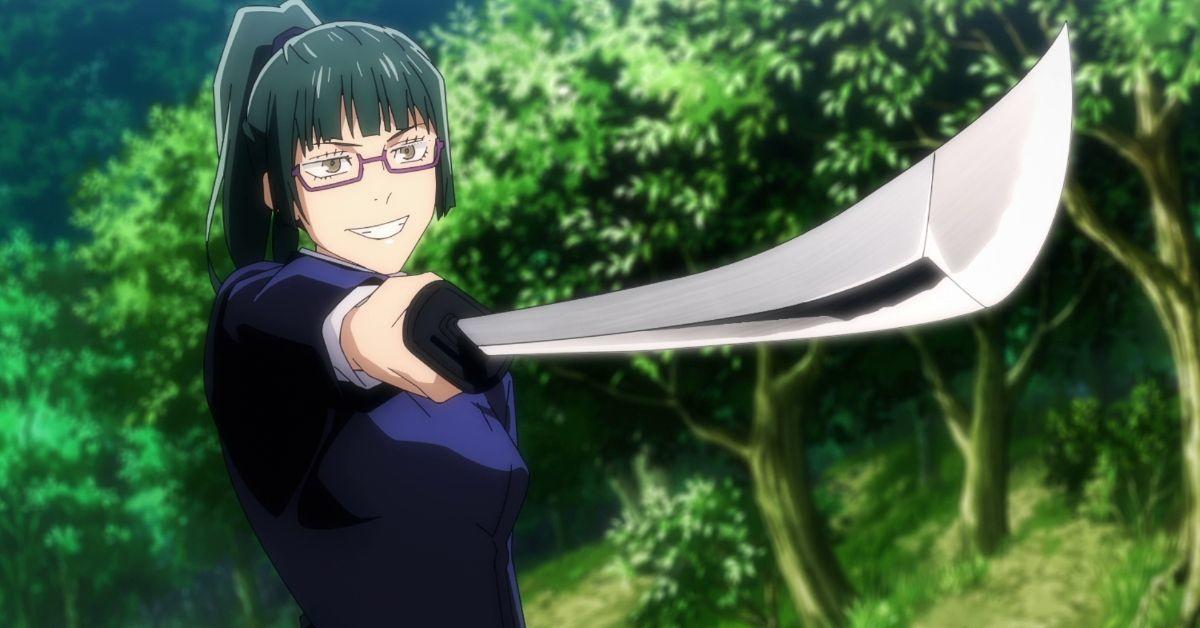
During the intense “Perfect Preparation” storyline, Maki Zenin confronts her harsh cousin Naoya Zenin. In this critical conversation, Maki dismantles the Zenin clan one by one. Naoya’s question, laced with his arrogant Zenin mentality, aims to elicit an emotional response or vulnerability from Maki. However, Maki’s detached answer, “No, it was taken from me,” conveys the deep sorrow she experienced following her twin sister Mai’s death – a loss that Maki considered as her heart. This response serves not only as a rebuff to his provocation but also mirrors the emotional and mental toll of her family’s mistreatment and deceit.
In simpler terms, Maki’s response shows she has no common human compassion for members of the Zenin Clan except Megumi, a change brought on by years of rejection, mistreatment, and close brushes with death at their hands. This transformation makes her an incredibly strong and relentless figure, reflecting her newfound power by discarding the vulnerabilities that her clan deemed as faults. This conversation serves as a strong illustration of how deep-seated family trauma can be devastating and Maki’s unyielding determination to forge her own path, seeking revenge for her sister’s death, while breaking free from the chains of her past and any lingering bonds.
2) “Not Zenin, Huh? Good For You.”
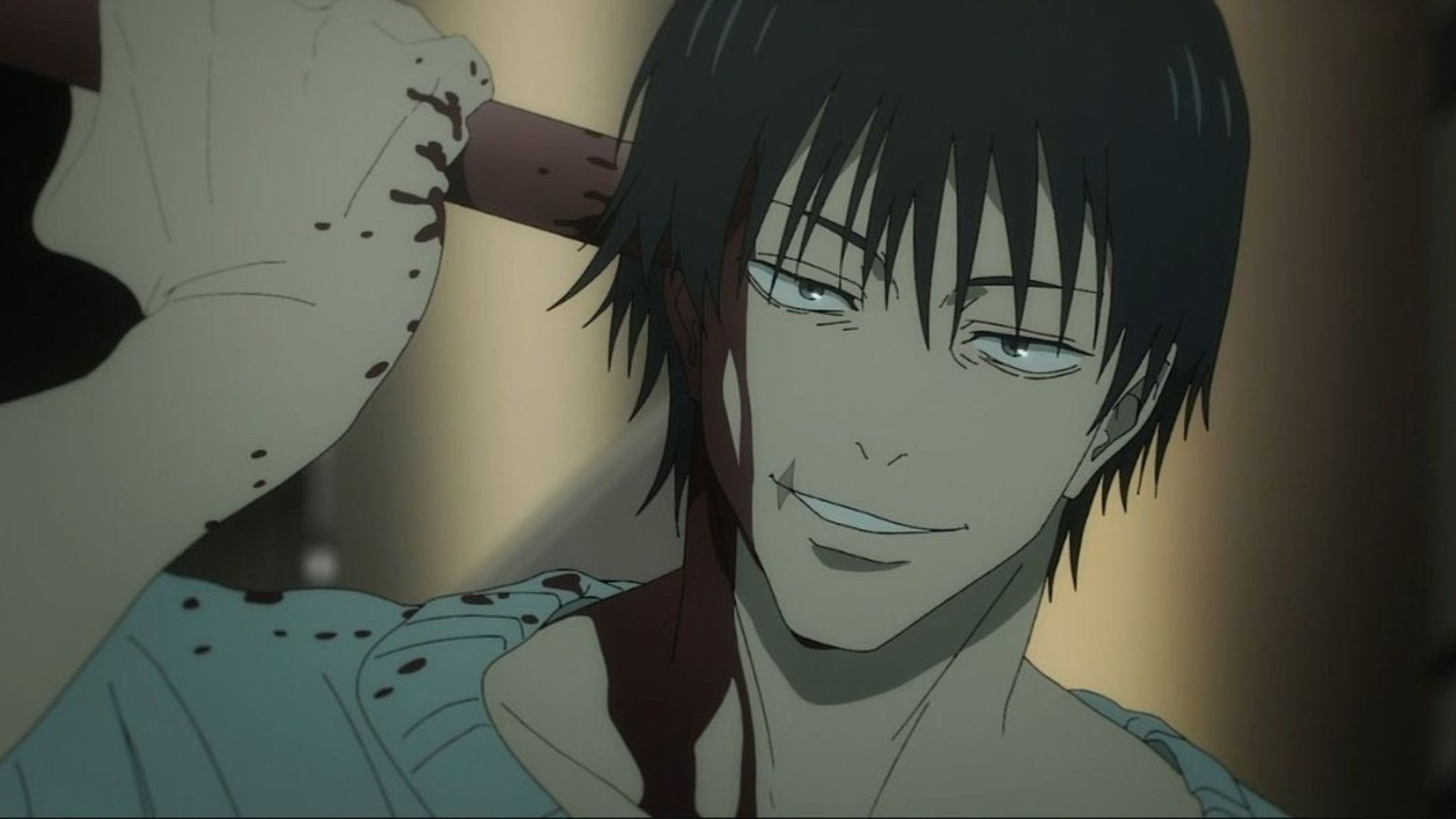
During the chaotic Shibuya Incident, Toji Fushiguro, now resurrected, speaks a surprisingly approving line to his son Megumi Fushiguro. Despite his chilling detachment, Toji acknowledges that Megumi chose not to carry the Zenin family name, opting instead for his mother’s surname – a decision that reflects his rejection of the oppressive traditions associated with the Zenin name, which Toji himself had abandoned due to his Heavenly Restriction. This moment is unusual, hinting at a rare, almost paternal understanding between father and son, despite their estrangement and Toji’s transformation into a being who fights only by instinct, having lost his human identity.
The quote holds significant depth, mirroring Toji’s lifelong contempt for the Zenin clan’s fixation on cursed energy and lineage. His endorsement of Megumi’s detachment from the family that despised him reveals much about his own past battles and his escape from their grip. It offers a brief snapshot of the man Toji used to be and a subtle nod to the son who, unbeknownst to him, is engaging in a battle with his father – a battle driven purely by instinct in the heart of Shibuya’s chaos. This underscores the complex, unresolved, and largely unknown history between father and son amidst the tumult of Shibuya.
1) “Love is the Most Twisted Curse of All.”
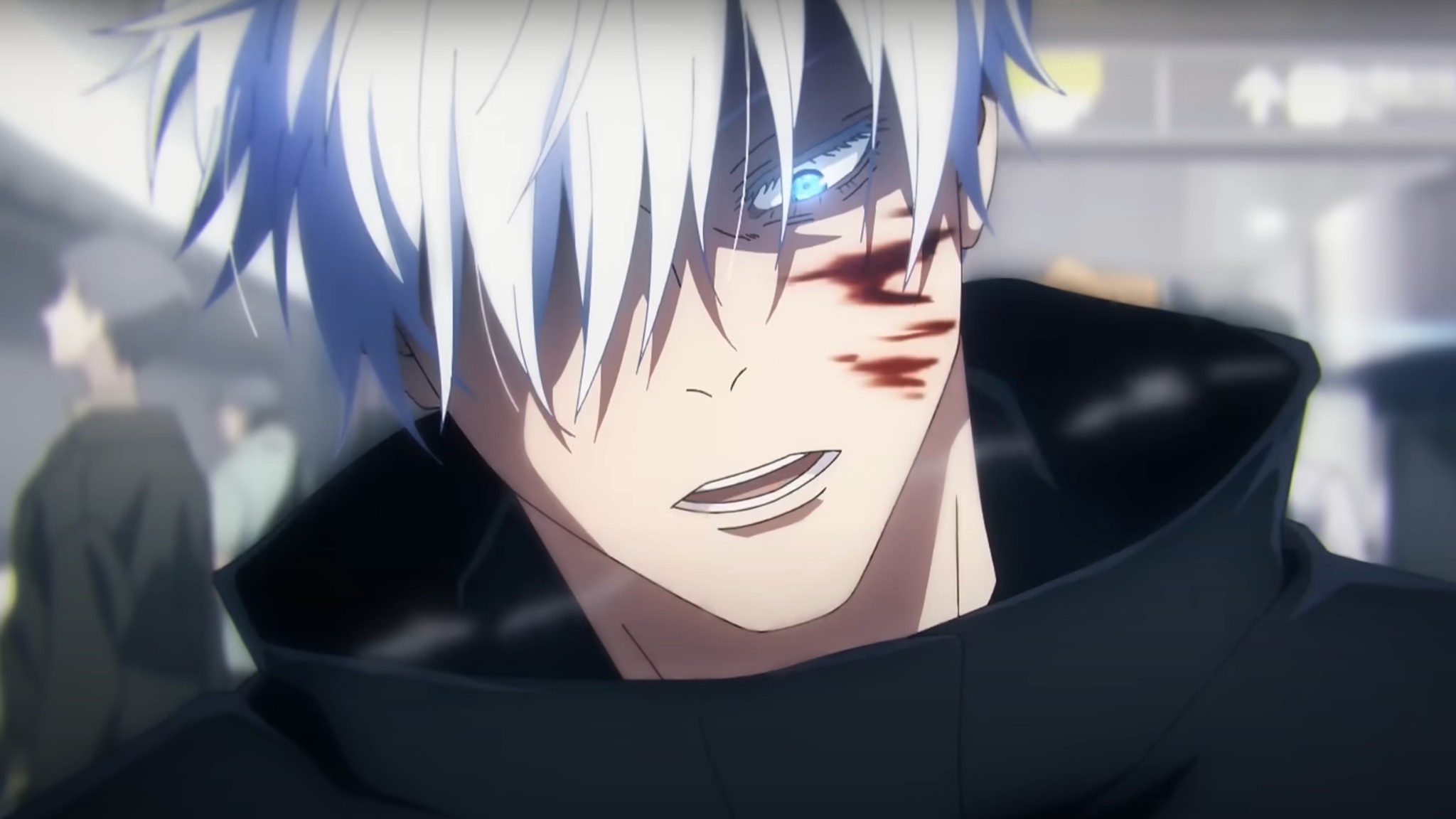
In the animated film “Jujutsu Kaisen 0,” Gojo Satoru delivers a profound and melancholic remark to Yuta Okkotsu, subtly revealing a philosophical perspective on the intricate link between cursed energy and human feelings. This statement, made during their conversation about the potent curse, Rika, which Yuta inadvertently produced due to his intense love and sorrow for Rika upon her demise, also seems to hint at Gojo’s personal reflections on his own tragic bond with Suguru Geto. The latter’s transformation into a villain not only shattered their friendship but left deep emotional wounds in Gojo as well.
The quote emphasizes a key idea in Jujutsu Kaisen – negative emotions, even those stemming from something as wholesome as love, can grow into harmful curses. Gojo, the most powerful sorcerer, has a deep understanding of this contrast between good and evil, having seen how overwhelming feelings can lead to corruption and destruction. His words carry a double meaning; they serve as a cautionary tale for Yuta about the immense might of his own emotions, but also offer a poignant insight into the tragic journey taken by his friend Geto that ultimately affected not only him but Gojo too. This statement serves as a crucial foundation for the series’ examination of curses and the human psyche.
Read More
- Gold Rate Forecast
- PI PREDICTION. PI cryptocurrency
- Mission: Impossible 8 Reveals Shocking Truth But Leaves Fans with Unanswered Questions!
- SteelSeries reveals new Arctis Nova 3 Wireless headset series for Xbox, PlayStation, Nintendo Switch, and PC
- Masters Toronto 2025: Everything You Need to Know
- Eddie Murphy Reveals the Role That Defines His Hollywood Career
- LPT PREDICTION. LPT cryptocurrency
- WCT PREDICTION. WCT cryptocurrency
- We Loved Both of These Classic Sci-Fi Films (But They’re Pretty Much the Same Movie)
- Elden Ring Nightreign Recluse guide and abilities explained
2025-06-04 04:14